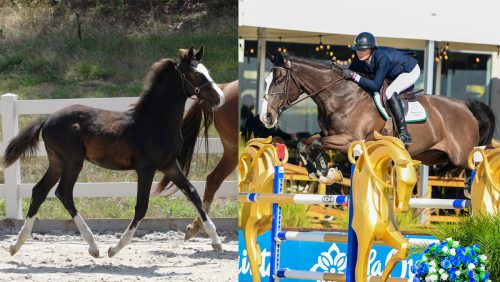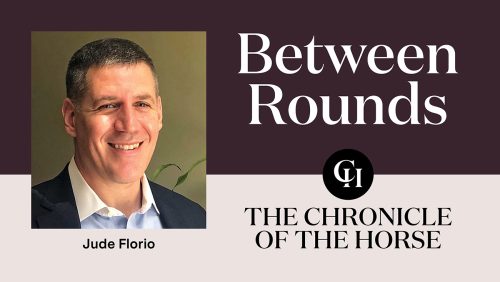Anyone who owns horses—whether they’re international athletes or treasured backyard companions—has a lot invested in them. While most horses are irreplaceable to their owners, how do you protect a horse that is nearly priceless, such as an Olympic medal winner? And how do you protect yourself as an owner if you have a barn full of sales horses of different values?
Horse owners have traditionally used equine insurance, in its various forms, to protect themselves financially. Whether through a major medical policy paying for a colic surgery or a mortality policy reimbursing an owner for a tragic loss, insurance has become a common part of horse ownership, especially for those who own one horse in which they’ve invested much time, effort and emotional attachment.
Every owner has to evaluate his or her willingness to take financial risks, and the decision to insure or not is a personal one that hinges on many factors. Insuring a horse worth $1 million can result in a high premium payment, for example. It’s a tricky balance between minimizing your risk and your expenses at the same time.
“Different owners look at things differently,” said Barton Hitchcock of Taylor Harris Insurance Services, based in Middleburg, Va. “There will be owners that insure up to the full, current market value. There are some who will self-insure a part of that. Some of that is to reduce their cost. They might only insure a horse for half of its value or 80 percent of it. That will decrease the premium that you have to pay, because the premium for the mortality insurance is a percentage of the sum insured.
“They have to determine what they’re willing to pay,” he added. “If you have a horse worth $100,000 and insure fully, that premium is going to be more than if you insure for $50,000 and take the risk on yourself for the other 50 percent of the value.”
Owners with deeper pockets—and more expensive horses—are more likely to assume more of the risk themselves and go without insurance or with a policy that doesn’t cover a horse to its full value. If they have disposable income and can cover a costly surgery without economic stress, they’re more likely to forgo insurance. They might “self-insure,” assuming all the risk.
“You have to have a fair amount of money to be able to self-insure. Honestly, I feel like people have to realize that a horse is a high-risk investment. They could lose it all. So you try to make it the best scenario you possibly can,” said event rider Kelli Temple.
“I would say the highest percentage of horses insured are valued between $25,000 and $100,000,” Hitchcock said. “You’ll have some below and above, but that’s a very common insurance bracket.”
Hitchcock pointed out that insurance is relative to the resources an owner has available. For instance, $25,000 to the average working amateur rider has more of an impact than $200,000 to somebody like Michael Jordan.
ADVERTISEMENT
“You have to think about what your economic situation can bear,” Hitchcock said. “On that $25,000 horse I just bought, if I get smacked with an $8,000 fee for colic surgery, that’s a huge expense. I’d have to dig and get it from somewhere. But, for someone else, that $8,000 might be much less hard to come by. So it’s a good buy for me to get that coverage. It’ll make a bigger impact.”
It’s A Business Decision
Bill Weeks, of Southport, Conn., has been buying and supporting multiple hunters and jumpers for his wife, Olivia Fry Weeks, and children—Alexa Weeks Pessoa, Whitney, and Olivia—for 20 years. A general partner of L&S Cranberry, a farm in Quebec, Canada, that is a major supplier for Ocean Spray, Weeks approaches horse ownership and insurance pragmatically.
“Insurance is a business decision,” said Weeks, who currently holds a policy with 10 horses on it. “When renewing this year with the economy not so good, insurance is one of the things you look at and maybe cut back and save money. But then you think, ‘If I have a catastrophic loss, I’m not in a position to go back into the market to replace a horse or horses.’ I didn’t change a thing because of the economy.”
Weeks has tailored his policy to suit his personal needs. “Basically, I’m trying to insure against catastrophic loss—a trailer accident with multiple horses or, God forbid, a barn fire. I keep a $100,000 deductible, which keeps my premium down,” he said. “It sounds like a lot of money, but the premium for my coverage would be significantly higher [with a lower deductible].”
He chooses not to insure his horses for their full value. “That would be very expensive,” he said. “But if something happened, we would have some money to go back into the marketplace to try and start over. Some people look at the fact that when you get up to a cer-tain level of premium, if you’re not getting a claim paid every three or four years, you could buy another horse on the money you spent over that period of time. But I look at it as, ’My yearly premium equals a quarter of what it would cost me to buy a new horse.’ If it got up to a half, I would probably self-insure.”
Weeks believes that insurance companies should tailor a policy to what the customer wants. “It’s just a formula they work with,” he said. “The reality is that the pricing in different companies is pretty close. It’s the service that makes a difference, the customizing of an account. Whether you have one or 10 horses, you deserve to have the type of service to customize how your policy is structured. Most people don’t realize that they can customize—they take what companies are selling. You only have to ask. The good companies will work with you, and you’ll know right away if you’re not with the right company. Ask them to be creative.”
No Right Or Wrong Way
Should you choose to insure, a horse’s purchase price is the baseline insured value. “That value can be changed within the policy period with performance, show record, training, numerous different things. If you feel like during the policy period your horse’s value has increased, you just call your agent and say you want to increase the value,” said Hitchcock.
ADVERTISEMENT
A base policy is a mortality policy, covering mortality for theft or death for any reason except willful and unlawful destruction by the policyholder.
“They’re pretty much the same for every horse—the difference is in the sum insured,” said Hitchcock. “The premium for a base mortality policy is determined by the horse’s age, breed and use.
“For example, you might have a pony that’s worth $100,000 and the rate is 3.4 percent,” he added. “You figure the mortality premium based on that. It’s a different rate whether it’s a pony or a horse, whether it’s doing dressage or jumping or eventing, driving or reining, and at what level it’s doing that. Age also affects the premium. At age 15, the mortality rate starts going up.”
The bigger variable is major medical coverage, which is added on to the base mortality policy. “That covers the diagnostics and treatment of accidents, illness, sickness, disease, things that aren’t routine veterinary maintenance,” said Hitchcock. “There are different levels of major medical coverage and different deductibles. When shopping for insurance, there isn’t going to be a whole lot of difference in the mortality coverage. The difference is going to be in the major medical. You’re going to have some underwriters that require a co-pay at different levels or limit coverage on certain procedures or exclude certain procedures.
“Anybody that’s buying insurance needs to ask the questions, ‘Are there limitations? Are there exclusions? Are there co-pays? What is the deductible?’ ”
After making a mortality claim on a jumper named Riane, who had a fatal allergic reaction to an injection, Weeks realized more than ever the importance of having a good relationship with his insurance agent.
“Looking back, my decision to insure looked prudent, and I got back all the money I’d spent in premiums at that point. After the necropsy, they signed off on it, and I had a check within days. It’s a terrible time emotionally, but they were terrific,” he said. “I really appreciated the people who were very supportive of us emotionally too. It wasn’t cut and dried business; they were very sincere in their concern for what happened.”
He also emphasized that there’s no right or wrong way to go about insuring. “It’s really a personal decision. Maybe you’re lucky—you choose not to insure and you never have a major loss and look smart, although if you stay in the sport a long time, you’re going to have a loss of some sort,” he said. “If you’re going to insure your horses and spend that money, make sure you have a very good agent because there’s a difference in the type of service that you get.”













